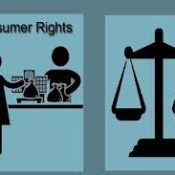
Workplace Rights & Regulatory Compliance: Navigating Service and Employment Laws
In today’s dynamic work environment, both employers and employees must navigate a complex web of legal obligations, rights, and responsibilities. Service and Employment Laws form the backbone of workplace regulation, ensuring fairness, transparency, and compliance across sectors. They govern the relationship between employers and employees, define service conditions, and provide remedies in case of disputes.
Key Areas of Service & Employment Laws
Employment Contracts & Terms of Service – Clearly define roles, responsibilities, remuneration, benefits, and termination clauses.
Wages & Compensation – Govern minimum wages, overtime, bonuses, and equal pay practices.
Workplace Safety & Health – Ensure safe working conditions, adherence to labor welfare norms, and accident prevention measures.
Employee Benefits & Social Security – Cover provident fund, gratuity, maternity benefits, and other statutory entitlements.
Industrial Relations – Regulate trade unions, collective bargaining, strikes, and lockouts.
Disciplinary Actions & Termination – Provide frameworks for lawful termination, suspension, or disciplinary measures.
Anti-Discrimination & Equal Opportunity – Protect employees from harassment, discrimination, and unfair treatment.
Importance of Service & Employment Laws
Protect Employee Rights – Safeguards workers from exploitation, harassment, and unfair practices.
Support Employers – Provides clear guidelines to manage human resources lawfully and efficiently.
Promote Industrial Harmony – Reduces conflicts and ensures peaceful resolution of disputes.
Enhance Organizational Productivity – Legal clarity fosters trust, commitment, and efficiency in the workplace.
Compliance & Reputation – Helps organizations avoid legal penalties and maintain a strong ethical standing.
Legal Remedies & Dispute Resolution
Labor Courts & Industrial Tribunals – Resolve disputes related to wages, service conditions, and industrial conflicts.
Conciliation & Arbitration – Out-of-court mechanisms to settle disagreements amicably.
Civil & Criminal Remedies – For cases of harassment, wrongful termination, or violation of statutory provisions.
Conclusion
Service and Employment Laws are essential for maintaining balance and fairness in the workplace. They ensure that employees’ rights are protected while allowing employers to manage operations efficiently. Businesses that adhere to these laws foster trust, boost morale, and avoid costly litigation, making compliance a strategic priority. Professional legal guidance can help navigate these laws effectively, ensuring both regulatory compliance and a harmonious work environment.
All Categories
Recent Posts
Consumer Protection Law: Safeguarding Consumer Rights
Tags





